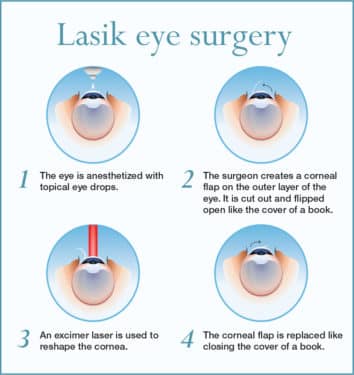Just How To Assistance A Family Member Dealing With Cataract Surgical Treatment: A Caretaker'S Viewpoint
Just How To Assistance A Family Member Dealing With Cataract Surgical Treatment: A Caretaker'S Viewpoint
Blog Article
Content Author-Leonard Bernard
As a caregiver sustaining an enjoyed one facing cataract surgical treatment, your duty is critical in guaranteeing their comfort and recuperation. From pre-surgery preparations to post-operative care, your presence and help can make a substantial distinction in their journey. Recognizing the emotional and physical challenges they may encounter, offering sensible aid, and being their column of support are key elements in this procedure. Keep in mind, your function exceeds simply offering help; it has to do with being a source of strength and convenience during a significant stage in their life.
Comprehending Cataract Surgical Procedure Process
Discovering the actions associated with cataract surgery can aid minimize any anxiousness or unpredictability you may have regarding the treatment. Cataract surgery is a typical and very effective treatment that entails getting rid of the over cast lens in your eye and changing it with a clear synthetic lens.
Before the surgery, your eye will be numbed with eye decreases or an injection to ensure you do not really feel any type of discomfort throughout the procedure. why not look here will certainly make a tiny cut in your eye to access the cataract and break it up utilizing ultrasound waves prior to thoroughly removing it.
Once the cataract is removed, the man-made lens will certainly be inserted in its area. simply click the next website takes around 15-30 minutes per eye and is typically done one eye at a time.
After the surgical procedure, you might experience some mild pain or obscured vision, however this is normal and need to boost as your eye heals.
Preparing for Surgical Treatment With Each Other
To ensure a smooth and worry-free experience, planning for cataract surgical procedure together can make a considerable difference in your enjoyed one's trip. Begin by going to pre-surgery appointments with them. This way, you can ask questions, understand the treatment, and offer emotional support.
Help them organize their pre-operative instructions, drugs, and transportation to and from the surgical facility. See to it their home is ready for their recovery by establishing a comfortable area with easy access to crucial things.
Aid them in scheduling post-operative treatment if required, such as help with meals or family duties. Urge them to comply with the physician's guidance pertaining to fasting before surgical procedure and medication procedures.
Comfort them that you'll be there for them every action of the means. By actively joining the preparation procedure, you can minimize stress and anxiety and ensure that your liked one feels supported and taken care of throughout this important time.
Post-Operative Care Tips
After cataract surgery, offering correct post-operative treatment is essential for your liked one's healing. Guarantee they use the protective guard over their eye as instructed by the doctor. Help them provide prescribed eye declines and drugs promptly to prevent infection and aid recovery.
Urge your liked one to avoid touching or rubbing their eyes, as this can lead to difficulties. Help them in adhering to any type of limitations on flexing, lifting heavy things, or taking part in difficult activities to stop pressure on the eyes. Make certain they participate in all follow-up appointments with the eye doctor for monitoring progression.
Maintain the eye area tidy and completely dry, staying clear of water or soap directly in the eyes. Urge your liked one to use sunglasses to secure their eyes from brilliant light and glow throughout the recovery procedure. Be patient and helpful as they recover, supplying help with day-to-day tasks as needed.
Verdict
Finally, supporting a liked one via cataract surgical procedure involves existing every action of the means, from pre-surgery prep work to post-operative treatment. Your emotional support, functional aid, and motivation can make a substantial difference in their recuperation process. By staying notified, arranged, and attentive to their requirements, you can assist guarantee an effective result and give them with the comfort and reassurance they need during this tough time.
